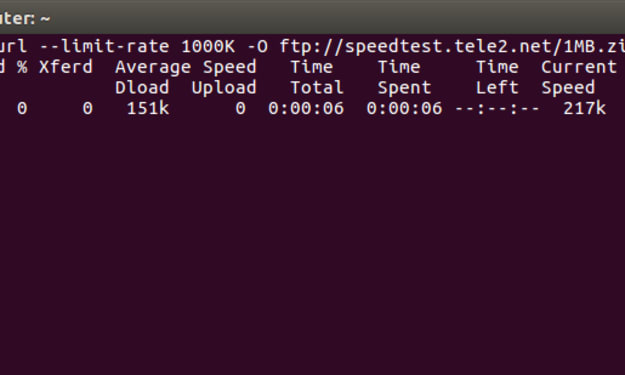Learning the Art of Bug Bounty
'Curl' bounty report walk-through

Hey guys, have you ever wondered what it would be like to become a "Bug bounty" hunter.
Bug bounty hunters are individuals who knows the nuts and bolts of cyber security and are well versed in finding flaws and vulnerabilities.
If you wanted to become a Bug bounty hunter and you have some knowledge in python, it will be an added value to create your own tools that will help you to achieve a specific goal that other tools won't do it for you.
Today, I am going to take you on a journey where you could gain some in depth knowledge on Bug Bounty by going through the reports submitted by other bug bounty hunters on various bug bounty platforms and we would also be gaining knowledge on various different kinds of vulnerabilities and their behavior as our perks of going through these reports.
We will be going through the bug bounty report submitted By Jonathan Leitschuh (jlleitschuh) to curl on Hacker-One bug bounty platform.

cURL is a computer software project providing a library and command-line tool for transferring data using various protocols. If you had read my previous blogs you might have seen me using cURL often and its one of favorite command-line tool.
SSRF via maliciously crafted URL due to host confusion
State Informative (Closed)
Disclosed January 9, 2021 2:33am +0530
Reported to curl
Reported at October 1, 2019 8:18am +0530
Asset https://github.com/curl/curl (Source code)
CVE ID
Weakness Server-Side Request Forgery (SSRF)
Severity Critical (10.0)
Summary:
Curl is vulnerable to SSRF due to improperly parsing the host component of the URL compared to other URL parsers and the URL living standard.
POC:
curl -sD - -o /dev/null "http://google.com:80\\@yahoo.com/"
Curl makes a request to yahoo.com instead of google.com.
To quote the standards body issue:
Specifically the authority state deals with parsing the @ properly. However as you'll notice if it encounters the \ beforehand, it'll go into the host state and reset the pointer at which point it won't consider google.com:80\\ auth data for yahoo.com anymore.
Other Libraries
const whatwg_url = require('whatwg-url');
// Created by the RFC maintainers
const theUrl = new whatwg_url.URL("https://google.com:80\\\\@yahoo.com/");
const theUrl2 = new whatwg_url.URL("https://google.com:80\\@yahoo.com/");
const nodeUrl = new URL("https://google.com:80\\\\@yahoo.com/");
const nodeUrl2 = new URL("https://google.com:80\\@yahoo.com/");
console.log(theUrl.hostname); // Prints google.com
console.log(theUrl2.hostname); // Prints google.com
console.log(nodeUrl.hostname); // Prints google.com
console.log(nodeUrl2.hostname); // Prints google.com
Impact
If another library implementing the URL standard is used to white/blacklist a request by host but the actual request is made via curl or the curl library, an attacker can smuggle the request past the URL validator thus allowing an attacker to perform SSRF or an open redirect attack.

Curl Staff - Mr. Bagder's reply:
When Curl staff Mr.Bagder came across this report he stated that,"Unfortunately, this is a bug WHATWG brought to the world when they broke backwards compatibility with RFC3986. curl has consistently handled the authority part of the URL exactly as RFC 3986 declares from back when the RFC was published (2005)".
And he pointed some resources for further reference such as URL interop issues.
Here's a document explaining some of the most glaring URL interop issues,
https://github.com/bagder/docs/blob/master/URL-interop.md
WHATWG changed how a "URL" works in a non-compatible way so cURL team couldn't easily follow as that would break functionality for their users (plus all the other craziness crap they do in that spec) so they've stuck to the RFC meaning.
In order to mitigate some of the most obvious problems in this new world of URL chaos curl contains a bunch of "kludges" to bridge the gap between the RFC and what browsers do but not all gaps are possible to bridge. The authority part of the URL is one of those.
According to Mr. Bagder's opinion, the RFC is quite clear in that the @-letter is a separator between the userinfo and the host name. To quote it:
The user information, if present, is followed by a commercial at-sign ("@") that delimits it from the host.
and there's no special treatment for backslashes so you can't "escape" the at symbol in the userinfo part. It needs to be URL encoded (%40) if you want it to be part of the name or the password.
Finally Mr. Bagder stated that he struggled and fought against WHATWG's destroying compatibility with legacy URLs but without much success.
curl and libcurl are certainly not alone in parsing URLs per the RFC. And since the WHATWG standard is "living", basically no one follows it exactly - and he has pointed out several such omissions over the years.
And hey guy's if you're still reading this blog i believe that your're interested to know what happened next... Without spoiler's i am going to add the conversation between Jonathan Leitschuh (jlleitschuh) and Mr. Badger below.
>> Jonathan Leitschuh (jlleitschuh):
Well, that URL interop document is a sobering look at the current state of the ecosystem.
@bagder if you have the time, that whole document could be turned into a very interesting Defcon talk that I would 100% want to watch.
The problem that I see is that, as a Java developer implementing a URL whitelist for, say, protecting against open-redirect, I'm going to use the libraries URL parser and ensure that the host declared matches my white list. However, as we can clearly see, the whitelist that I create could easily be bypassed by an attacker by hiding their own URL in something that my server-side logic will have validated as safe.
This conflict around who's right isn't actually doing the users we're trying to protect much good.
Given that all major browsers seem to use the WHATWG standard, wouldn't it be better to push our industry forward instead of holding on to older standards? If that's not the right answer, do we as an industry need to make a bigger push back against the ratification of the WHATWG standard and get browser vendors to roll back their decision to support it?
What is the correct path forward here to protect the users that have no idea that this issue even exists?
>> Mr. Bagder :
Thanks. It certainly could've been fun to do a talk based on that document as I have in fact been on this URL standards crusade for many years already. I even went back and found this blog post of mine from 19 months ago: One URL standard please which discusses pretty much exactly this userauth parsing problem you've mentioned here. That was a follow-up from my 2016 blog post My URL isn't your URL.
As I'm barred from entering the US, it could never be done on a US based conference though. A good previous talk that is basically a version of what it could be is this: Exploiting URL Parser in Trending Programming Languages! (even if some of what he says in there has been fixed since, it was a contributing reason to why libcurl introduced a URL parser API.)
Given that all major browsers seem to use the WHATWG standard
Browsers do yes, especially over time because they can forget history rather swiftly in ways not everyone else can.
wouldn't it be better to push our industry forward instead of holding on to older standards?
I don't think we've seen proof that WHATWG is a good shepherd or caretaker of such an important document as a URL spec (I would actually argue the contrary). They're just too focused on browsers and their own game only and ignores pretty much everything else - and in case you've missed it: URLs are used for much than just in browsers. Also, the way the document is maintained and handled leaves a lot to be desired in my view.
I realize this "URL spec battle" is often little me against enormous company behemoths but I wouldn't do it if I didn't think that the Internet loses the day we all give in and let WHATWG dictate this.
I mostly blame WHATWG for this state of affairs (and they know I do). Secondarily, I blame the IETF who hasn't had the nerve to step up to challenge WHATWG and work on a RFC3986 update to unify the world - and I know there are a lot of IETF people (friends!) who refuse to accept the WHATWG way of defining URLs.
What is the correct path forward here to protect the users
I really, strongly and sincerely wish I had a good answer for this. I don't.
For users of libcurl, I can only strongly urge and recommend users to also use the libcurl API for parsing URLs etc. It is the mixing of URL parsers that is the risky thing.
I'll keep talking, blogging, complaining and informing the world of how URLs (don't) work. One of these days something will change and improve.
So, back to this issue at hand. This is not a new issue and it is widely known in these circles. It is not something we can easily address in the short term.
I hope you guys have enjoyed today's blog, stay tuned for more interesting content.
About the Creator
Motti Kumar
Hey guys i'm Motti Kumar and it’s a pleasure to be a guest blogger and hopefully inspire, give back, and keep you updated on overall cyber news or anything hot that impacts us as security enthusiast's here at Vocal Media.






Comments
There are no comments for this story
Be the first to respond and start the conversation.